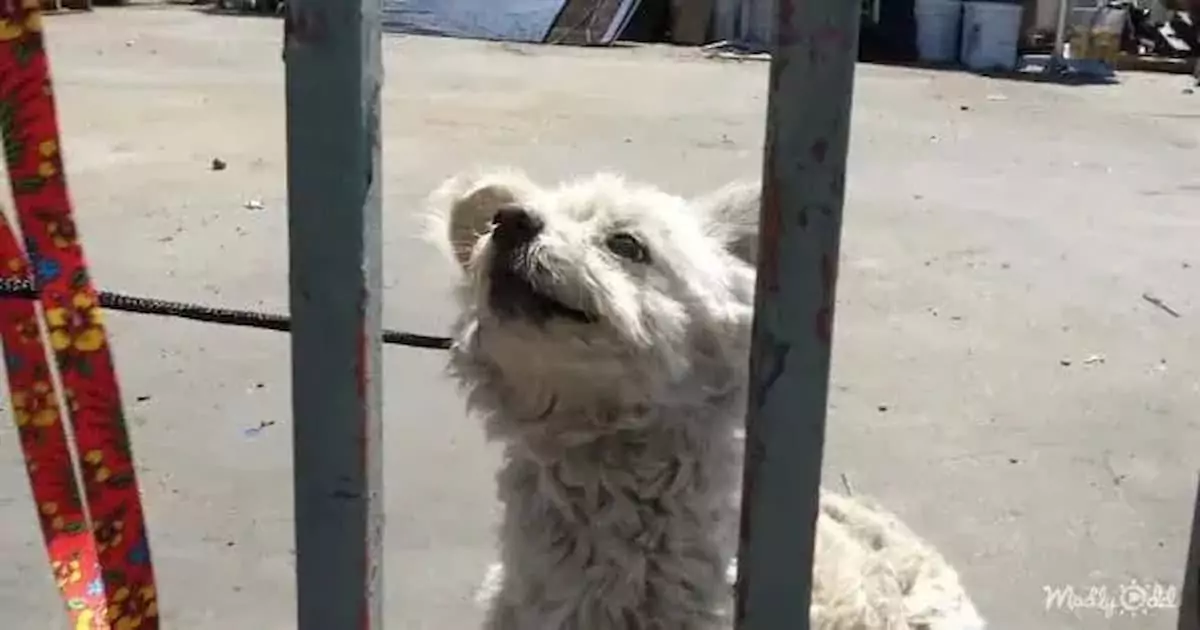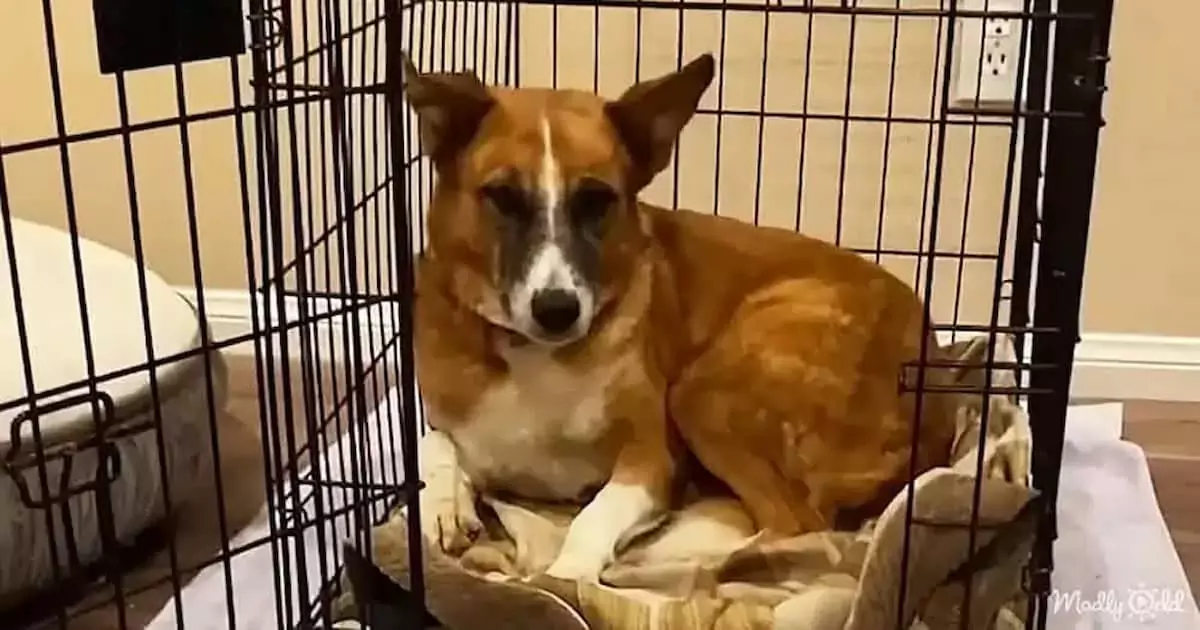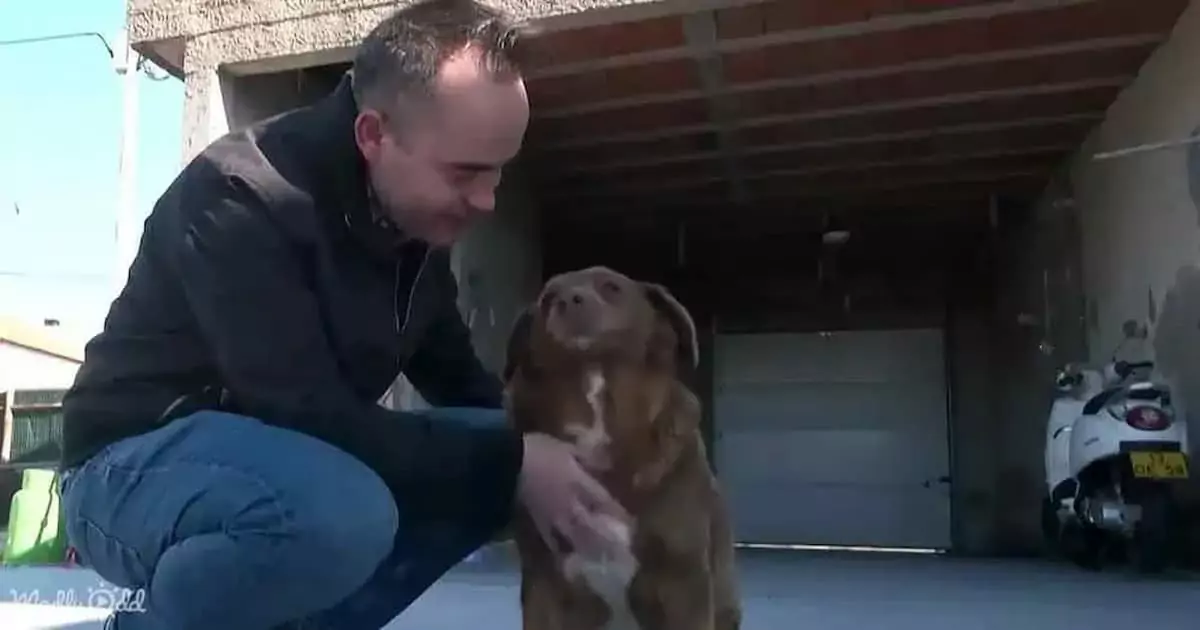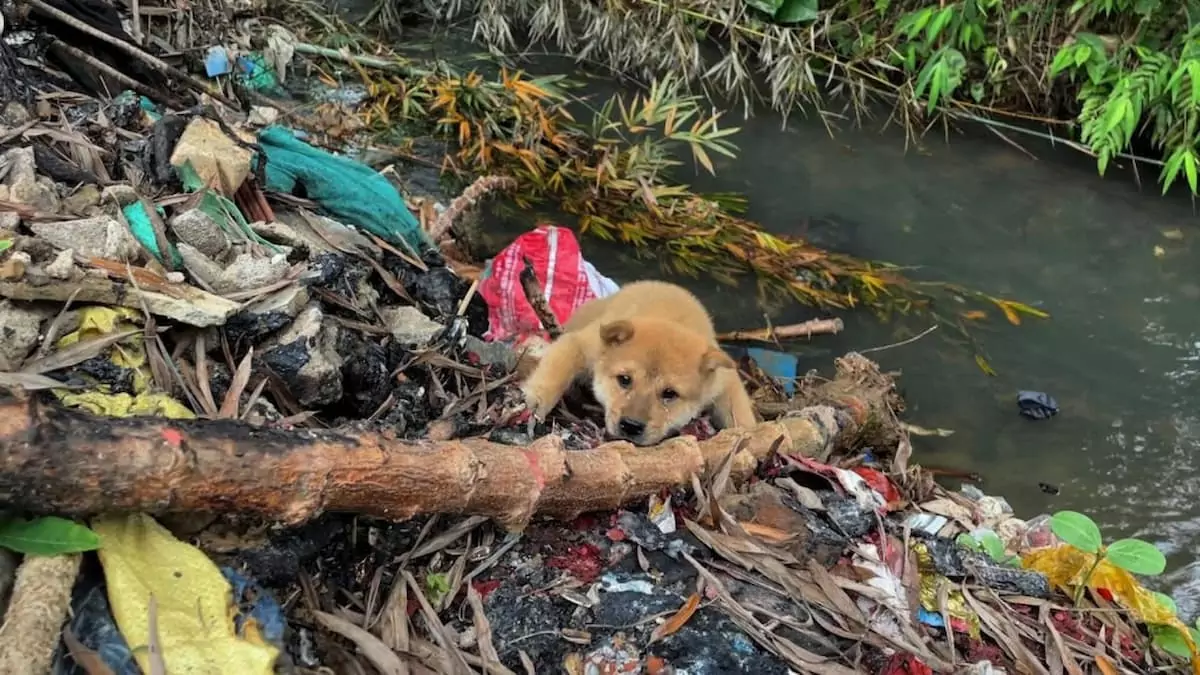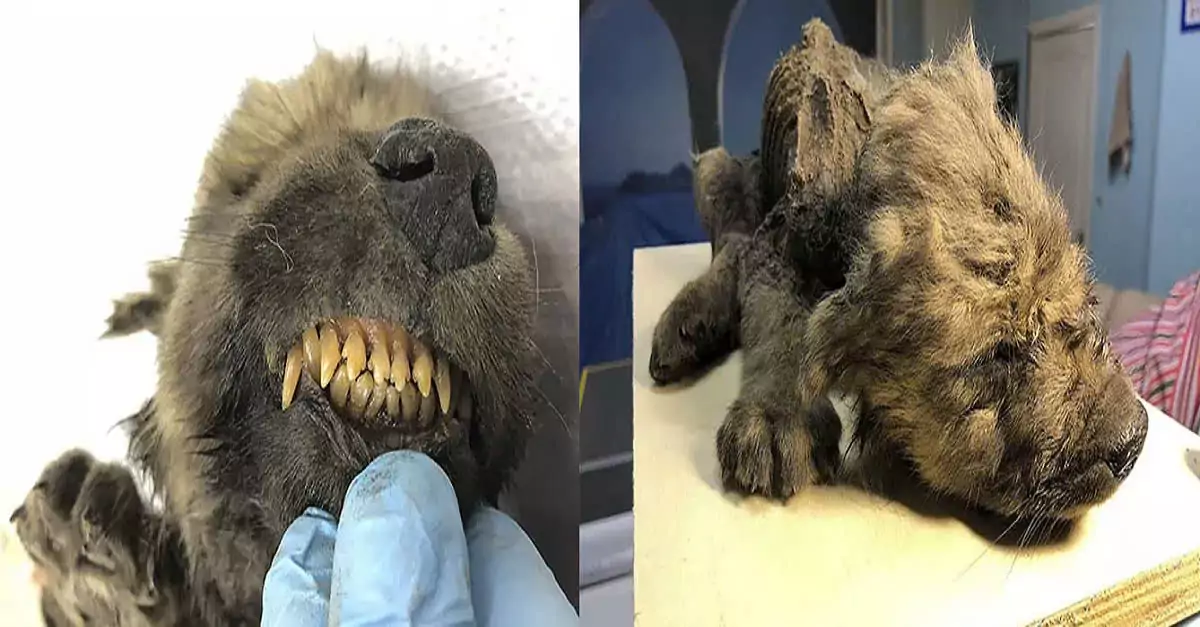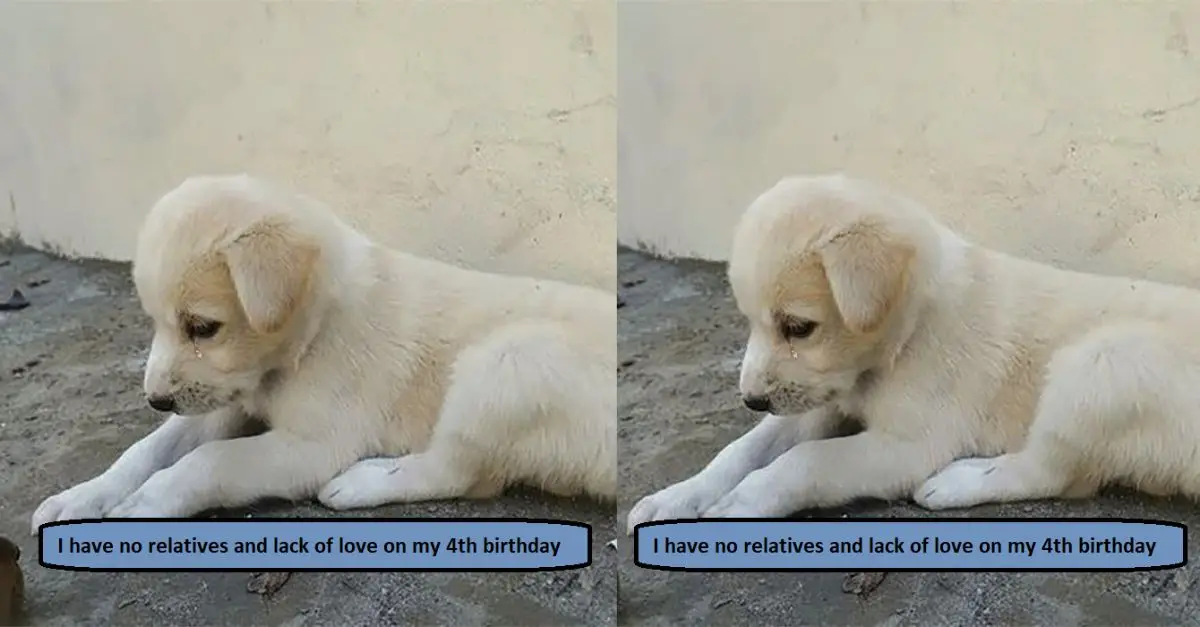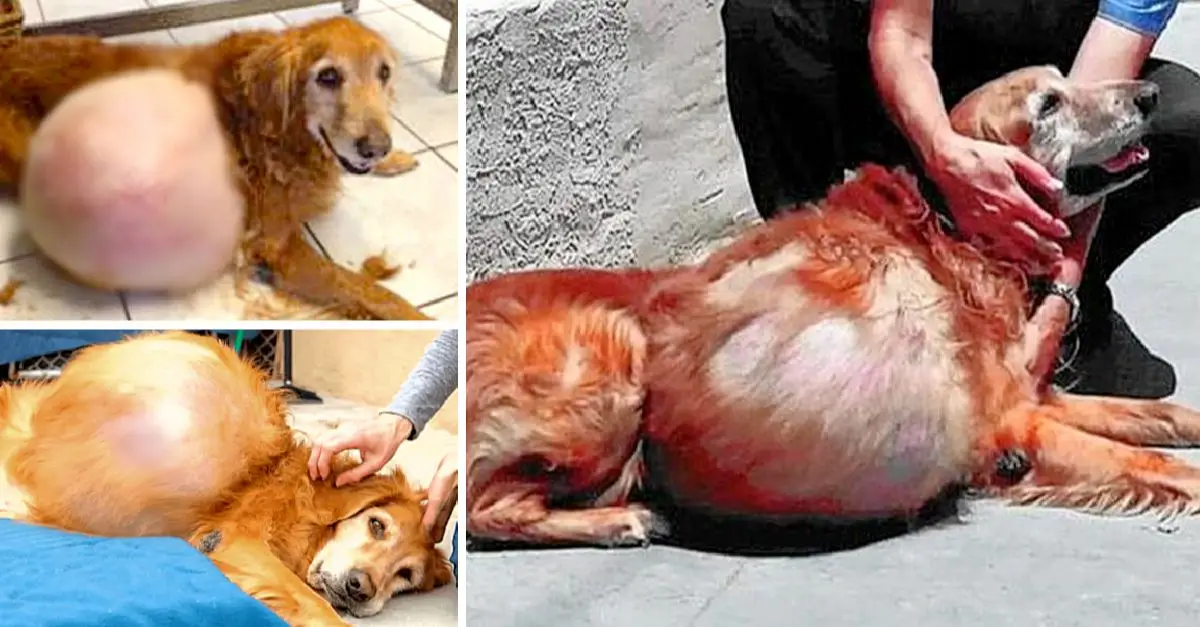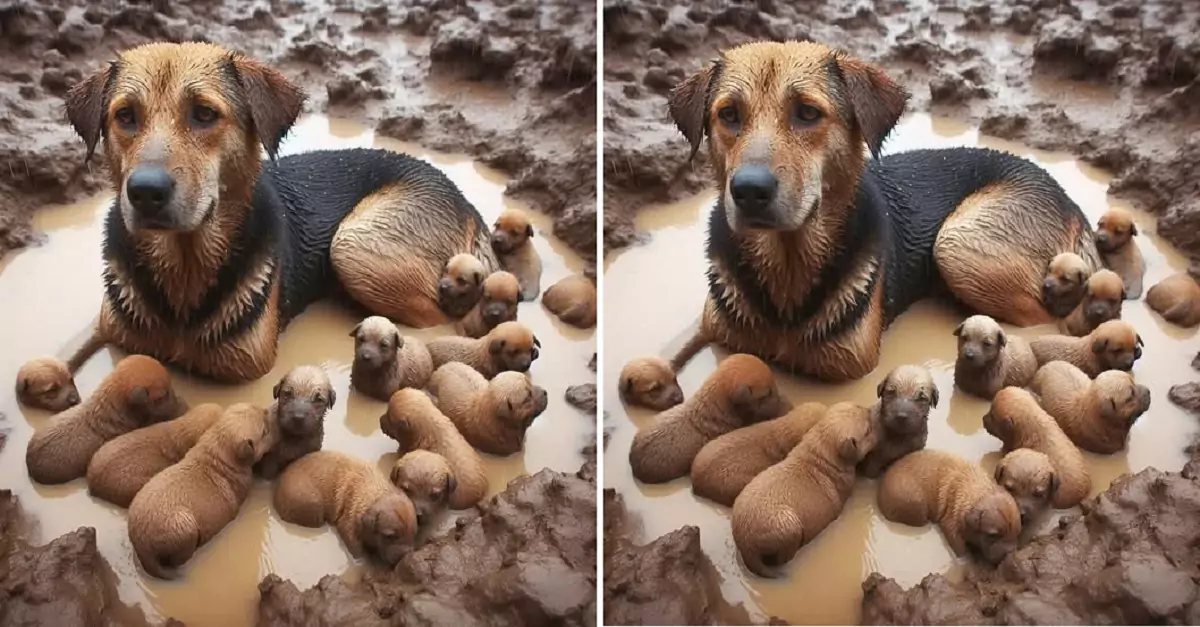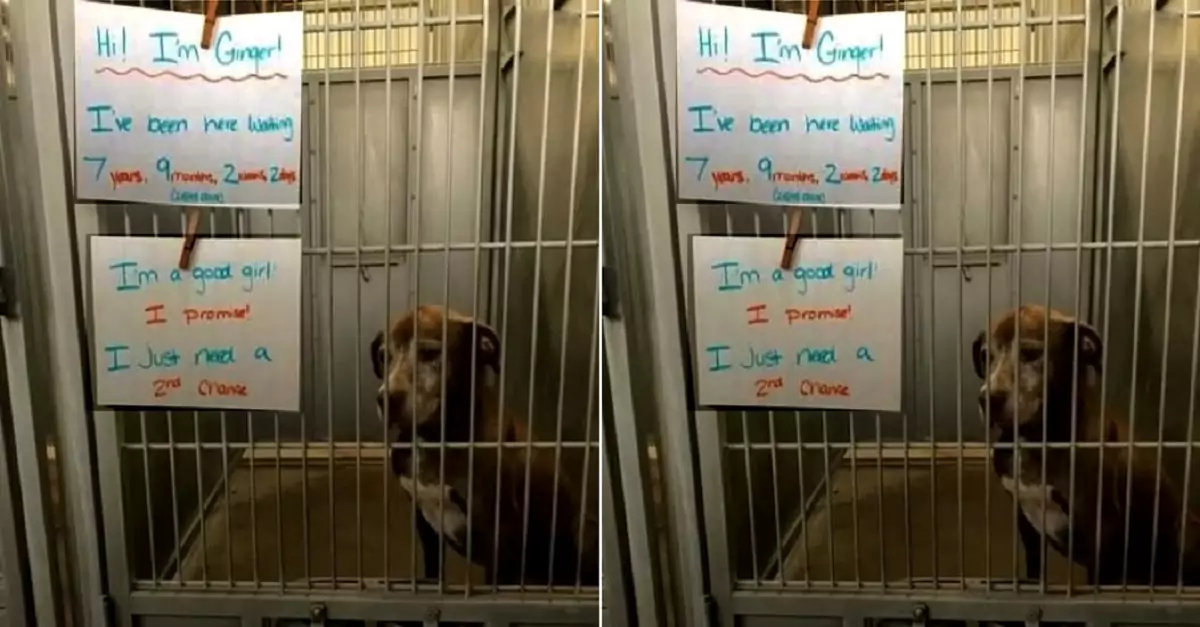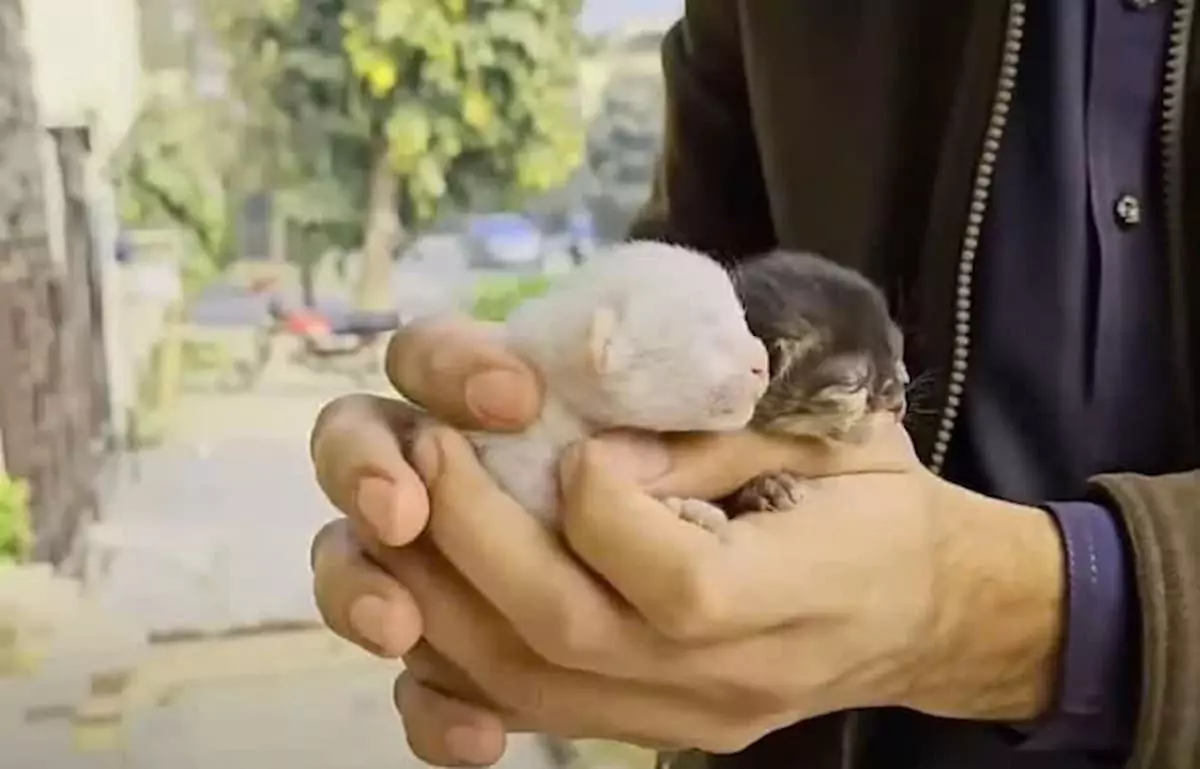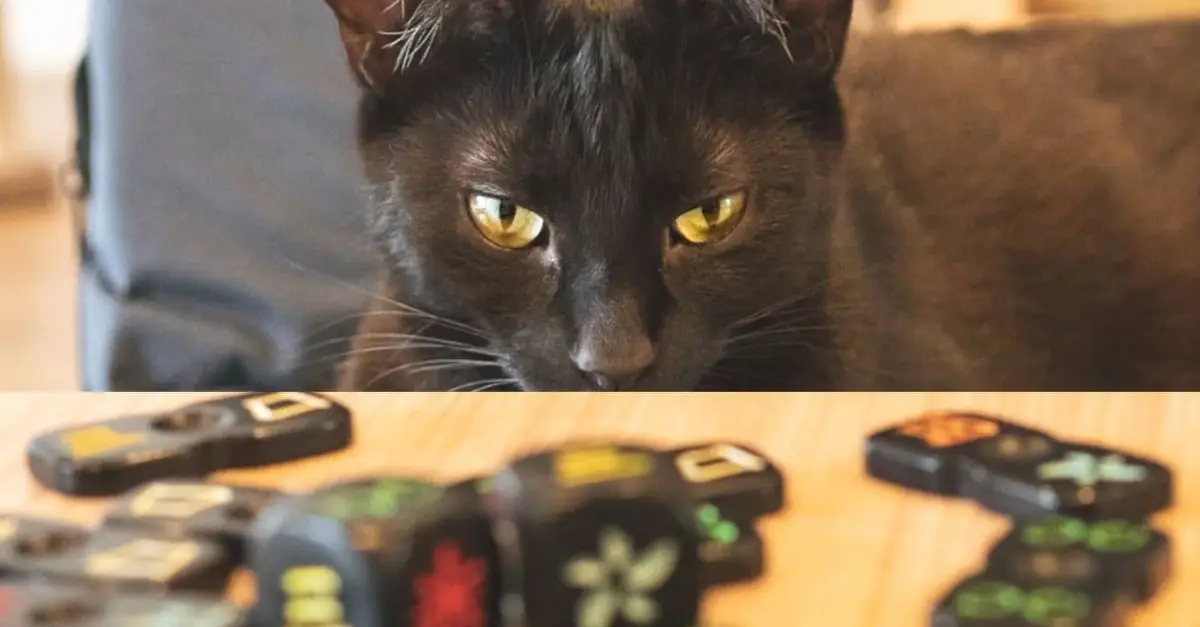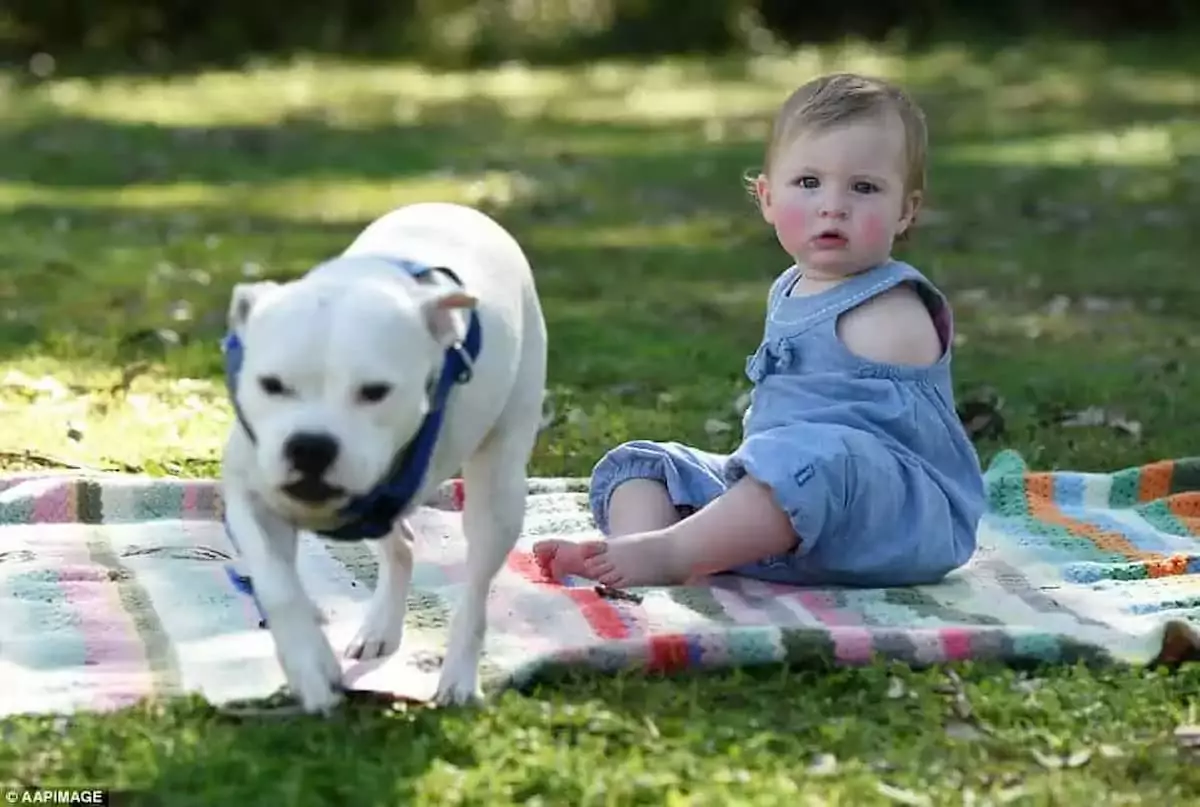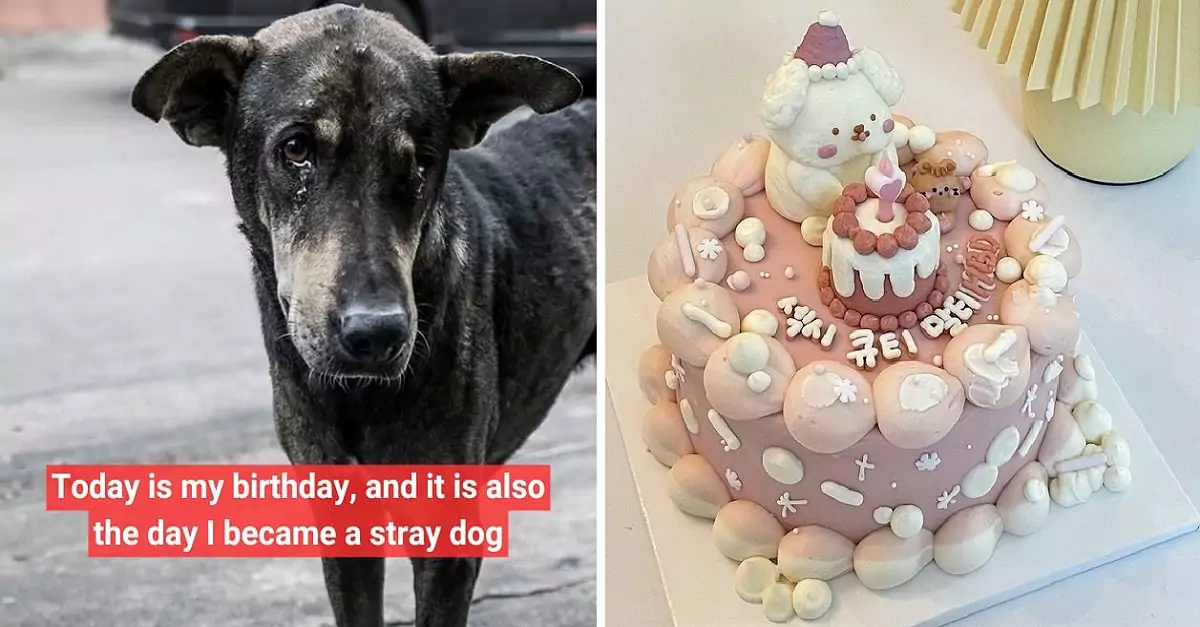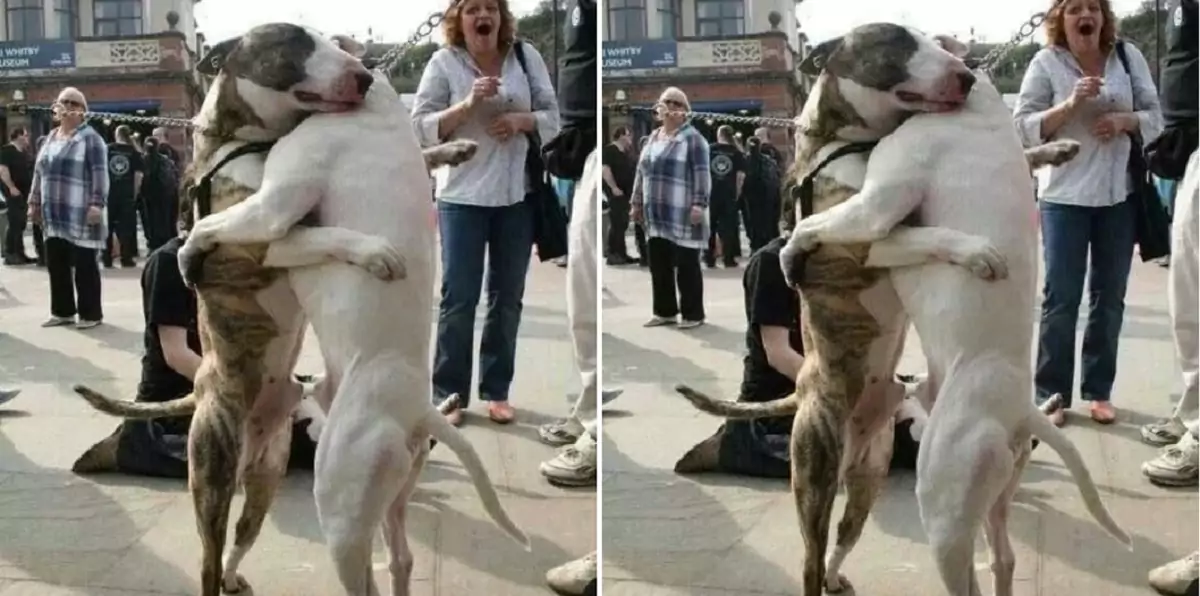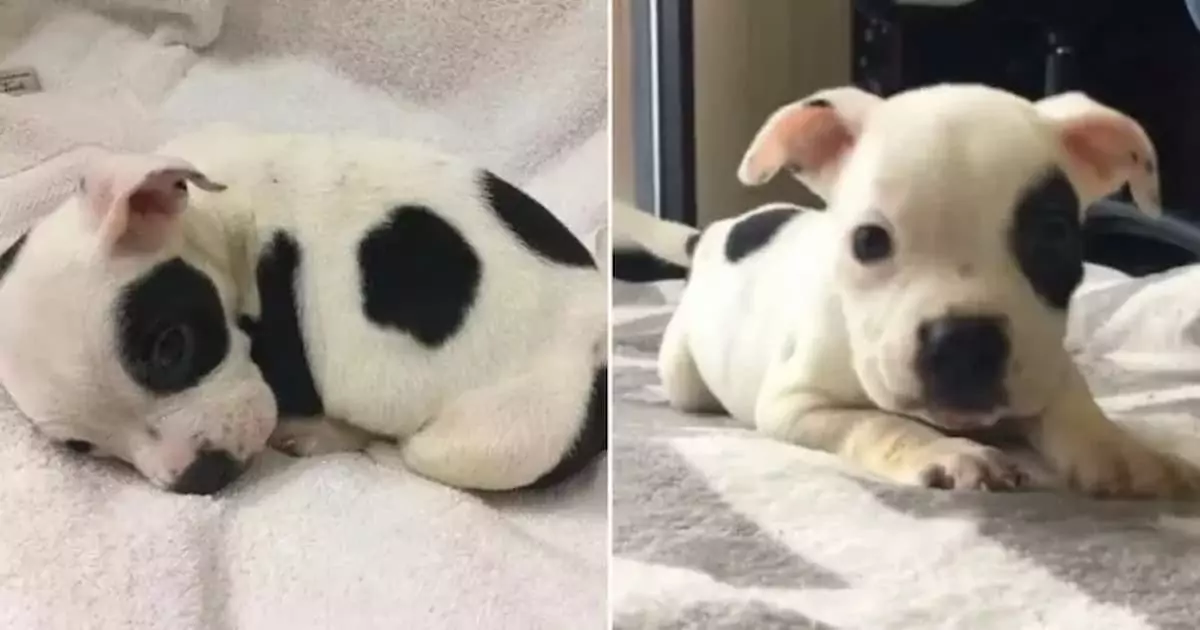While the playful puppies ran joyfully around, the abandoned husky remained motionless in the corner of the room, paralyzed by fear and loneliness.
It was a lively afternoon at the shelter. New toys had been delivered, and the younger dogs barked with excitement, their paws scrambling across the smooth floor as they chased balls and tails alike. The room was filled with energy, with hope, with noise.
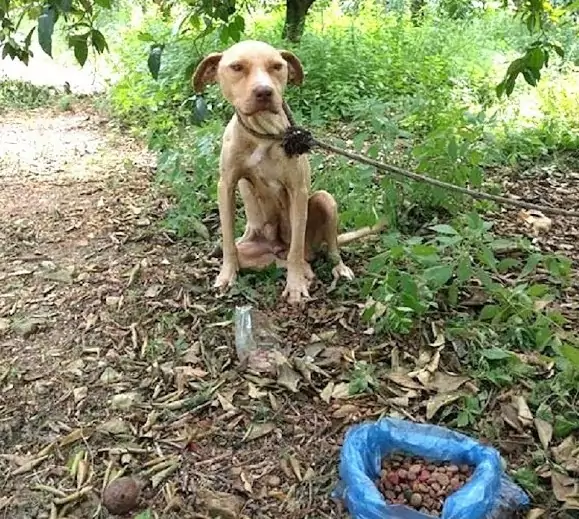
But in the farthest corner—where the light from the window barely reached—lay a husky, silent and still. His coat, once snowy and proud, was now dull and matted. His ears didn’t perk up at the sound of laughter or movement. His eyes, a deep and piercing blue, stared blankly ahead. The world moved on, but he didn’t.
He had arrived at the shelter a week earlier. A kind stranger had found him lying by the roadside—thin, trembling, and barely conscious. There was no collar, no microchip, no sign that he had ever belonged to anyone. But the way he flinched at sudden movements, the way he refused to eat unless left entirely alone—it spoke volumes.
The shelter staff had seen many abandoned dogs, but something about this husky was different. He didn’t bark. He didn’t growl. He didn’t cry. It was as if he had folded all his emotions into silence.
He lay curled in the corner, day after day, as life danced around him.
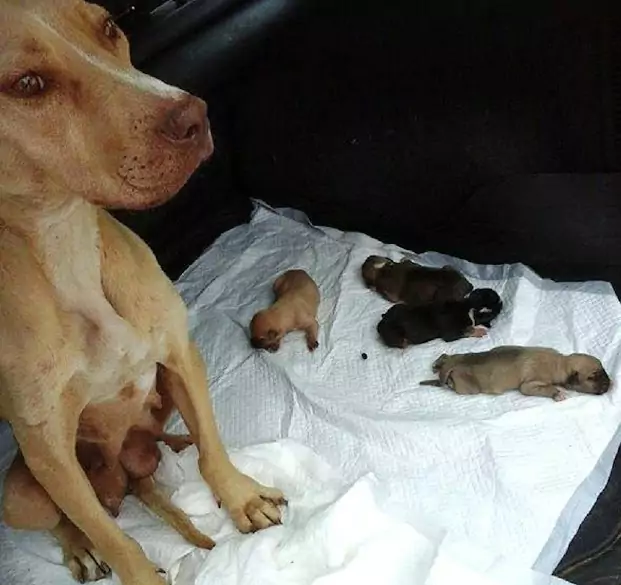
The puppies in the same room didn’t understand. They would bounce over to him with wagging tails, offering toys and licks, hoping to invite him into their games. But he never moved. He would only stare at them for a moment—almost sadly—before resting his head back on the floor, as if their joy was something he no longer believed he was allowed to feel.
But there was one volunteer, a young woman named Eliza, who refused to give up on him.
Every afternoon, when her shift ended, she would sit near his corner. She didn’t speak at first. She just sat, her back against the wall, reading a book softly aloud. She never reached out to touch him, never forced affection—only let her presence speak the words he couldn’t yet hear: You are safe now. You are not alone.
It took four days for him to lift his head when she entered the room.

A week more before he shifted slightly when she read to him.
And then, one rainy evening, as thunder shook the windows and most of the puppies curled into their beds, he dragged himself just slightly closer to her. It wasn’t much—only a few inches—but for him, it was everything. It was the beginning of trust.
In the weeks that followed, Eliza became his anchor. She learned to speak gently, to move slowly. She brought him a soft blanket and placed it near her feet. Bit by bit, his fear loosened its grip. One day, he ate from her hand. Another day, he let her stroke his fur. And then, at last, he wagged his tail—just once, but it was real.
He still didn’t play like the others. The wounds inside him were deep, and some may never heal. But his eyes began to follow her. His ears twitched at the sound of her laugh. He began to sit beside her, leaning in quietly, just to feel someone close.
And then the miracle came.
A family visited the shelter—quiet people, gentle people, with soft hands and patient smiles. They weren’t looking for a playful puppy. They asked the staff, “Do you have a dog who needs a calm home? One who needs time, but will love deeply?”
They were introduced to the husky.
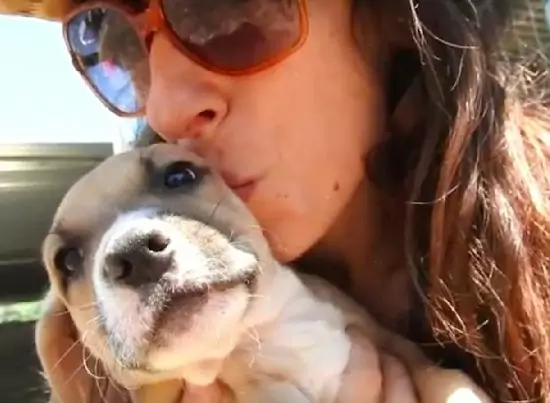
He didn’t jump or wag or rush to greet them. But when the little girl knelt down and whispered, “Hi there,” he took one slow step forward and pressed his nose into her palm.
Eliza watched with tears in her eyes.
The next day, he left the shelter. His corner was empty—but no longer lonely. It had been a place of silence, of fear. But through love and patience, it had become a place of healing. And now, that healing would continue in a forever home.
For the husky who once lay paralyzed by fear and loneliness, life had opened its doors again. And this time, he walked through—not alone.

